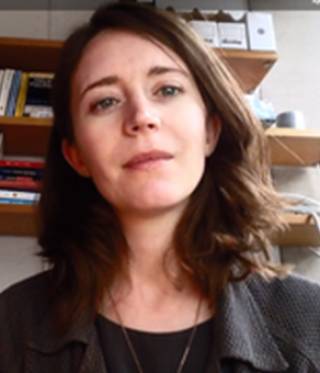I am an economic geographer specialising in finance, labour and urban development. My research examines different approaches to financing social infrastructures of care and housing, and the implications for those who live and work in them.
- More about Dr Horton
One major area of work examines how care homes for older people in the UK are funded, built and governed, including in times of crisis and pandemic. I'm interested in what conditions support good quality care services and the retention and wellbeing of care staff.
A second concern is how local government, property developers and communities seek to shape urban development, especially the ownership and financing of housing and space for local traders.
A third strand of work - with academics, artists, activists and others - explores solutions to problem debt and alternative routes to financing our futures. Here I take a feminist perspective on transitioning to caring and just economies in the context of climate change.
In terms of teaching, I'm responsible for the Economics and Geography BSc. I lead the two undergraduate economic geography modules, as well as supervising a range of student research on areas such as labour, finance and urban political economy.
- Teaching
I teach on the following modules:
- Economic Geography (GEOG0023, Convenor)
- Economic Geography II (GEOG0047, Convenor)
- Thinking Geographically I (GEOG0151)
- Thinking Geographically II (GEOG0012)
- Publications
To view Dr Horton's publications, please visit UCL Profiles:
- Research Interests
Key projects
Understanding the financial impact of COVID-19 on the UK care home sector – implications for businesses and the workforce (2021-2023)
This research explored the impacts of the pandemic on care homes' financial sustainability and their workforce, to identify recommendations for employers and policymakers. As the co-investigator on this project, I worked with Warwick Business School, policy experts at the Centre for Health and the Public Interest, and representative bodies from the sector. The project was funded by UK Research & Innovation.
Disrupting the Speculative City: Property, power and community resistance in London (2020-2024)
Increasingly, urban governments are using speculative property development to raise revenues and reshape places. Demolishing council estates and low cost workspaces, to make way for new private housing and chain stores, has profound consequences for diverse working class communities. This research examines a totemic case of the ‘speculative city’ – and shows how grassroots resistance can disrupt it. A collaboration with Dr Joe Penny (UCL Urban Lab), community members and councillors, it analyses the campaign to 'Stop Haringey Development Vehicle', which successfully averted plans for the transformation of Tottenham and other areas of north London. The project identifies insights for urban governments, housing movements, local economy groups and community organisations. The project was awarded a grant from the UCL Social & Historical Sciences Dean's Strategic Initiative Fund (2020). A book, Disrupting the Speculative City: Property, power and community resistance in London, will be published by UCL Press in 2024 and will be free to read online.
Financing Prosperity by Dealing with Debt (2020-2022)
Solutions to debt across households, community, local government and wider scales, presented by contributors including scholars, artists and ethical finance professionals - in a free-to-read e-book.
Financialisation of Care: Investment and organising in the UK and the US (2014-2017)
This research examined financial investment in care homes for older people, as well as efforts by labour and community groups to ensure that care is valued more highly, in the UK and the US. The project was funded through a doctoral studentship from the Economic and Social Research Council.
- Impact
I am committed to developing research in collaboration with groups beyond academia. In 2021, I was awarded a UCL Policy Impact and Engagement Fellowship.
I regularly engage with elected representatives in Parliament and local government, policymakers and think tanks, industry bodies, NGOs and trade unions, community groups and journalists, both in the UK and internationally.
For example, my research on social care has been undertaken in collaboration with organisations such as the National Care Forum and Unison. Findings have been covered in national and industry media. I have briefed policymakers and parliamentarians and contributed to political party consultations. This work has helped to increase public and policy awareness of the implications of care home ownership and finances – for example, in Labour Party policy.
- Research Students
- Migration and remittances: A study of remittances from Nigerian migrants in London - Ngozi Fakeye (second supervisor)
- The Paradiplomatic Relations between La Línea de la Concepción and the British Overseas Territory of Gibraltar - Beatriz Moraes Vidal (second supervisor)
- Work and Life at the Bottom of the Pay-scale: Experiences of Exploitation of Low Paid Workers in Global London - James Frederick Green (co-supervisor)
- Urban governance, civil society and neighbourhood participation: conceptualising the relational work of Settlements - Ben Hughes (Bartlett School of Planning) (second supervisor)
 Close
Close


